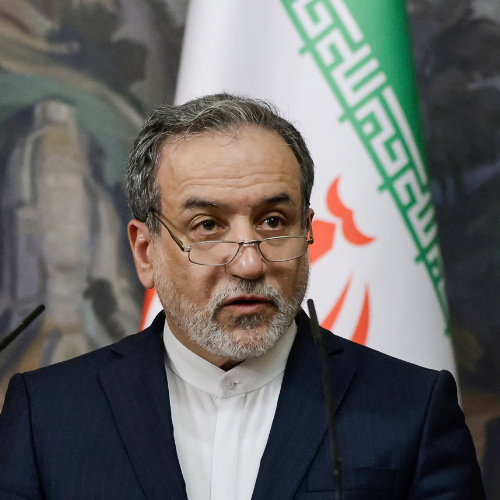The tension surrounding Iran’s nuclear program has led to a series of important diplomatic moves in recent days. On Thursday, Iran’s foreign minister announced that he was ready to travel to Europe for discussions regarding Tehran’s nuclear activities.
This announcement comes just days before a new round of nuclear negotiations is scheduled to begin in Oman on Saturday. These talks are especially important as they mark the third round of negotiations between Iran and the United States, which were planned after a series of earlier talks between Iran, China, and Russia.
Iran is seeking to build on the progress made in the earlier talks. These discussions are centered around the future of Tehran’s nuclear program and the possibility of lifting the heavy sanctions that have been imposed on the country. Tehran has been in ongoing discussions with the three European powers—Britain, France, and Germany, collectively known as the E3—since September of last year. The goal has been to find common ground on how Iran can limit its nuclear activities in exchange for easing sanctions that have significantly impacted its economy.
France Unleashes $2 Billion Military Aid Package for Ukraine
At the same time, Iranian officials are signaling their openness to engage with the European powers, suggesting that Iran is not solely focused on talks with the United States. The diplomatic gesture to visit Paris, Berlin, and London shows Iran’s desire to keep its options open and continue working with multiple parties in the negotiations. However, while Iran seems ready to engage in further talks, it is still uncertain whether Europe and the United States will agree to the terms Tehran is proposing.
The Status of European Relations with Iran
European nations have played a crucial role in the discussions surrounding Iran’s nuclear program. In 2015, these countries, alongside the United States and other global powers, struck a landmark agreement with Iran known as the Joint Comprehensive Plan of Action (JCPOA). However, the relationship between Iran and Europe has not been without its ups and downs. Recently, European relations with Iran have soured, particularly over other issues, such as Iran’s ballistic missile program, its support for Russia in the ongoing war in Ukraine, and its treatment of foreign nationals detained in Iran.
Macron Rages Against Patriot and F-35 ‘Threat,’ Urges Europe to Buy SAMP/T NG and Rafale
Despite these challenges, France has reiterated its commitment to dialogue. The French government emphasized that while it is ready to engage with Iran, it expects Tehran to demonstrate a sincere commitment to diplomacy. The French foreign ministry made it clear that any future agreement between the E3 and Iran would require Tehran to show it is genuinely invested in finding a peaceful resolution to the nuclear issue. France, alongside the other European powers, has expressed its hope that Iran will engage in meaningful talks that could lead to a de-escalation of the current tensions surrounding its nuclear ambitions.
However, the European powers are also wary of Iran’s actions. Their concerns stem from the possibility that Iran may be secretly pursuing nuclear weapons, despite Tehran’s insistence that its nuclear program is for peaceful purposes only. European diplomats have made it clear that they are not willing to continue discussions indefinitely without seeing clear steps from Iran toward reducing its nuclear activities. This pressure is critical, as the European powers, in coordination with the United States, have the ability to push for the reimposition of United Nations sanctions on Iran if significant progress is not made in the negotiations.
The Role of the United States in the Nuclear Talks
While Iran and the E3 have been engaging in their own rounds of discussions, the United States has remained a central figure in the negotiations. Under the leadership of the previous U.S. president, Donald Trump, the United States withdrew from the 2015 nuclear deal with Iran. This withdrawal complicated the diplomatic landscape and led to an increase in tensions between the two countries. The Trump administration also imposed severe sanctions on Iran, which have had a devastating effect on the Iranian economy.
France Furious as America’s Controversial Diversity Ban Sparks Chaos
Since the U.S. withdrawal, there has been ongoing uncertainty about the future of the nuclear deal. President Trump’s administration has made it clear that it will not allow Iran to develop nuclear weapons, and has even threatened military action unless Iran agrees to a new deal that limits its nuclear capabilities. The United States has also signaled that it would seek to trigger the snapback mechanism at the United Nations Security Council, which could lead to the reimposition of sanctions on Iran if no substantial agreement is reached.
In an effort to coordinate more closely with the European powers, the U.S. lead negotiator met with European diplomats in Paris in mid-April. This meeting was seen as a step toward improving cooperation between the United States and the European countries in the effort to find a diplomatic solution. However, there remains a level of uncertainty about how the U.S. and European nations will align their strategies as the deadline for a potential new agreement looms closer.
For now, the main focus remains on the upcoming round of talks in Oman, where the U.S. and Iran will attempt to resolve their differences over the nuclear program. The outcome of these talks will likely determine whether or not the international community can achieve a peaceful resolution to the nuclear standoff with Iran.

